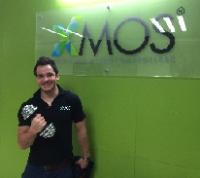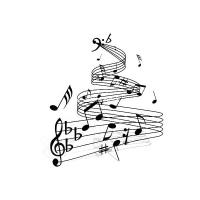Hi,
First of all, please excuse us for our poor English! Currently in a French engineering school, we are a group of four students working on a mixing console project using Xmos. The main idea of the project is for it to be open source: musicians or amateurs who are interested could easily make it by following simple instructions. Since everybody would be working with the same hardware, there won’t be any problem of compatibility so everyone could easily exchange audio effects, programs, algorithms, ideas etc. The aim of this project is to create an easily transportable audio mixer that could be used live by musicians without a computer attached to it.
In the beginning, we thought about programming on a classic DSP. But for every leading brand - although the DSP cards were affordable - their IDE were all overpriced for a student project like ours. So when we found Xmos, we knew it was for us!
Since we’ve got our XS1-L2 recently, we are starting to program effects. For the moment, effects like reverb, equalizer, chorus and flanger are working perfectly. There will be soon the phaser effect, and why not some other fun ones that we can create ourselves.
Although we know about the GitHub where many effects’ codes can be found directly, we wanted to program the basic effects on our own to be sure we understand perfectly how everything works. Also, GitHub is still a little bit complicated for the uninitiated, so we’re saving it for later.
Afterwards, we will have to create an interface by adding buttons, switches, a VU meter, and an LCD screen. But for now, we're only focusing on analog audio so there is no S/PDIF, no MIDI, no USB and no external memory, just audio!
Let us know if you are interested and if you have some other additional ideas. We’ll keep you informed about the progress of our project!
Open source mixing console
-
Ross
 Verified
Verified - XCore Legend
- Posts: 1295
- Joined: Thu Dec 10, 2009 9:20 pm
- Location: Bristol, UK
Sounds interesting, good luck with the project!
Is it based on an XMOS originated board or are you making your own hardware?
Is it based on an XMOS originated board or are you making your own hardware?
-
fullm3tal1991

- Member++
- Posts: 17
- Joined: Wed Nov 28, 2012 4:31 pm
Hi, I'm also in the team of this project!Ross wrote:Sounds interesting, good luck with the project!
Is it based on an XMOS originated board or are you making your own hardware?
Right now we are working on the USB audio 2.0 MC board. We thought it was the best way to begin and fully understand XMOS microproccesor and hardware. Then ( probably after summer holidays, we will create our own board)
-
phalt

- Respected Member
- Posts: 298
- Joined: Thu May 12, 2011 11:14 am
Let us know how the project progresses, have you made a project of it on the Projects page yet?
-
fullm3tal1991

- Member++
- Posts: 17
- Joined: Wed Nov 28, 2012 4:31 pm
Right now we haven't a Project page because the project is not enough advanced.phalt wrote:Let us know how the project progresses, have you made a project of it on the Projects page yet?
I think I'll make one in a few weeks.
Today the console is really simple. With a few buttons you can control sound effects on the chosen audio channel.
Spdif, Adat, Midi, and USB communication are disable. We will add those communications later.
The only mode is:
Analog Audio => ADC => DSP (sound effects and mixing) => DAC => Analog audio
We have already programed:
- 10 Band EQ
- 3 Band EQ
- Flanger
- Chorus
- Simple Reverberation
- Vibrato
We know that some of them have already been programed and they are on the github. But we have chosen to reprogram all of them and after we understand all the effects we will optimize them with the existing effects on the github.
-
franksanderdo

- Experienced Member
- Posts: 69
- Joined: Sat Apr 30, 2011 6:19 pm
Hi Ho,
may I ask which DACs / ADCs you are using?
Regards
Frank
may I ask which DACs / ADCs you are using?
Regards
Frank
-
fullm3tal1991

- Member++
- Posts: 17
- Joined: Wed Nov 28, 2012 4:31 pm
the used codec is Cirrus Logic® CS42448. It's the original codec of the audio usb 2.0 MC.franksanderdo wrote:Hi Ho,
may I ask which DACs / ADCs you are using?
Regards
Frank
In the futur we may build our own card and change the codec, but right now we will continue with the CS codec.
